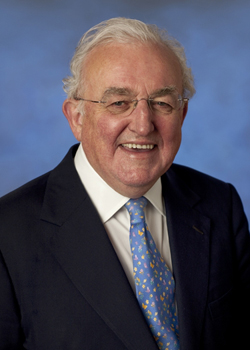Brian Griffiths: Why Cutting Inflation Tax is the No. 1 Priority

Who can you trust to manage the public finances and cure inflation?
This is the key issue in this election campaign. Liz Truss wants to cut taxes, borrow more and start paying back after the next general election. Rishi Sunak wants to get inflation under control first as a foundation for enterprise and growth.
Sound money was key to Thatcherism. Mrs Thatcher saw inflation as a tax on every household and every business but a tax never passed by Parliament. For her inflation also had a moral dimension, as it does for Sunak. It penalises saving and pensions (other than index-linked pensions). It makes home ownership a pipe dream for younger people. It creates huge disparities of wealth. In addition inflation creates a culture of distrust which invariably leads to social conflict, witness current rail strikes and ballots for strike action in the public sector, the Don’t Pay campaign opposing rising energy bills and the disillusion of youth, saddled with repayment of university debts, forced to rent and a despairing economic outlook – the official Bank of England verdict.
Margaret Thatcher took a particular interest in Treasury affairs but she never looked at economic policy in isolation. Her policies were founded on her basic beliefs – telling the truth however unpalatable, balancing the books and personal values such as thrift, living within your means, hard work and self-reliance.
Over the five and a half years that I worked as head of the No 10 Policy Unit she would discuss government spending, borrowing and monetary conditions constantly. She had an instinctive grasp of economics and the need to ‘balance the books’ whether in business, in the family or in government.
I cannot count the number of times Mrs Thatcher told me that one of her greatest fears was that one day one of her Chancellors would cut taxes and “gamble on the future of the economy”.
Cutting taxes today is just such a gamble. It would reduce the country’s rainy-day reserves. We need reserves because of nasty surprises. Covid was a complete surprise. So was the Russian invasion of the Ukraine. So was Putin’s weaponisation of gas. So is the Chinese zero-Covid policy. We need reserves as a country much as we need reserves in families and businesses. As the Bank of England must raise interest rates to curtail spending, cutting taxes would mean greater government borrowing with higher debt interest payments. Tax cuts worsen the fiscal outlook without any direct impact on growth.
Increased business investment is critical to increasing growth. In making a decision to invest business is not so much interested in the next six to twelve months as in the next five to ten years. The key to that decision is what will happen to inflation. How far will it come down? Does anyone think it will come back to 2%? When inflation does come down how volatile will it be? The current inflation has shocked people. Consumer spending is falling. Until business and consumers know inflation has been beaten we will have stagflation.
For business inflation creates uncertainty over interest rates, the cost of capital, exchange rates, wage demands and output. And also the stability of government.
Mrs Thatcher practised what she preached. When she became Prime Minister she did not cut taxes in the 1979 budget, the month after being elected. Income tax was cut but VAT raised to offset it. In the 1980 budget taxes were not cut but modestly raised. In the 1981 budget taxes were not cut back but raised significantly. This was despite the objections of 364 economists at British universities signing a letter, drafted by two senior Cambridge professors of economics. In response, Professor Patrick Minford, who like me disagreed with the majority view, wrote in The Times (7 April 1981): “The essentials of the inflationary process are simple. It starts when government unwilling to cover expenditure by overt taxation and borrows from the public.”
Some economists advising Liz Truss judge that the situation today is different from Mrs Thatchers’s time, so it is possible for monetary policy to be tight and fiscal policy loose. They believe that the Bank of England already has inflation under control and should only start to pay back borrowing after the next election. Inflation was certainly higher in the early ’80’s than it is now but there is little evidence that people’s expectation of inflation or that the ambition of trade unions to claw back higher real wages is in any way diminished. Attempting to engineer tight money and loose public finances is a major gamble with our economy.
As someone who discussed economic policy with Mrs Thatcher frequently and at great length, it is inconceivable to me that she would ever have agreed to cut taxes at the present time. It was certainly her intention to cut taxes to create an enterprise economy but only when the time was right. At a time when public borrowing is 100% of GDP, annual interest on the debt alone is £80 billion, the labour market has more job vacancies than registered unemployed, the balance of payments deficit is very worrying, the pound shaky and inflation not just high (consumer price index 10.1%, retail price index 12.3%) but forecast to rise, the one thing we can say with certainty is that under these conditions Mrs Thatcher would never have cut taxes.
Cutting across the board taxes like national insurance and corporation tax today while inflation is soaring is no basis for future prosperity. Inflation is a punishing tax levied on every household and small business, made worse by the very tight labor market. Rishi Sunak is right to argue that cutting the inflation tax is the essential pre-requisite for sustained economic growth. We are facing tough times and the case against tax cutting is overwhelming.
Lord Griffiths is the Chairman of CEME. For more information please click here.

